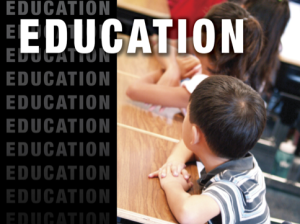Hawaii principals predict substantial drop in reading and math scores

DROPPING SCORES? Hawaii’s principals are not bullish on standardized test scores under new Common Core standards.
By Malia Zimmerman | Watchdog.org
HONOLULU — Sixty five percent of Hawaii’s public school principals are predicting a drastic drop in math and reading test scores the coming school year.
One school leader wouldn’t be surprised to see a dip of 50 percent.
The main culprits: Common Core and government bureaucracy.
The principals made the report on their required Academic Plan for the 2014-2015 school year, where they set learning targets for math proficiency and reading proficiency on the state test.
Of about 210 principals who posted their scores, 98 predicted student math test scores will drop by 30 percent, while 94 school principals estimate there will be a 30 percent decline in reading scores.
Just 18 percent of principals expect scores to improve.
According to retired public school principal Darrel Galera, principals’ predictions are dismal partially because tests for the newly implemented Common Core curriculum will be more rigorous.
University of Hawaii Law School professor and author Randall Roth, who has advocated to decentralize Hawaii’s single, statewide school district to make it more accountable and responsive, said he didn’t believe Hawaii’s public schools could be any more bureaucratic, but they have become even more so over the last decade.
“The centralized, top-down command governance structure has put so many mandates on principals and schools, they have not had time to prepare for the new tests. The mandates are overwhelming to the principals and school community. In addition, many of the mandates are ones that the school community doesn’t believe in,” Roth said.
Donalyn Dela Cruz, spokesperson for the DOE, disagrees with Galera’s view, saying the new Smarter Balanced assessments are different from the Hawaii State Assessments of the past. Labeling any change in scores as a “drop” would be inaccurate because results from the old tests cannot be compared with scores of a new test that measures different standards, Dela Cruz said.
“With higher Common Core standards and new assessments, public education in a majority of states is changing,” Dela Cruz said. “Assessment results in Hawaii and many other states will set a new baseline, which cannot be compared with past years. We are establishing a new bar for student achievement to ensure they graduate college and career ready.”
Dela Cruz said for the first time, parents will know how their child is performing in relation to students in other states, based on standards aligned to college and career expectations.
She noted because of budget cuts four years ago, public education suffered with teacher furlough days and a one-size-fits-all approach to reforms such as No Child Left Behind.
Dela Cruz said since then, much has changed and public education has progressed with a clear vision that is outlined in the Strategic Plan.
“The results are positive — more students taking the Advanced Placement classes and passing AP tests, unprecedented growth in math and reading on the National Assessment of Educational Progress, more students enrolling in college and fewer students needing college remediation,” Dela Cruz said. “Ultimately, the response to student learning lies with student performance, which as the local and national data shows us is on a positive, upward trajectory path due to our hard-working educators.
Reach Malia Zimmerman at Malia@hawaiireporter.com







